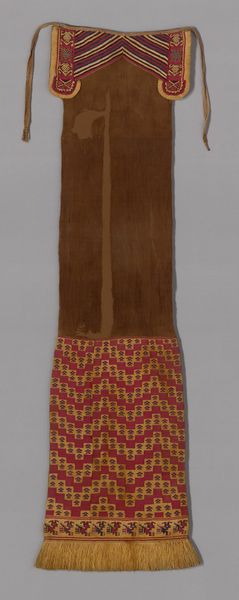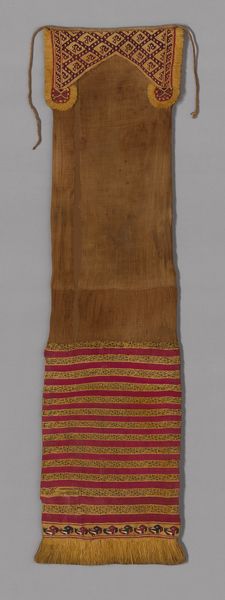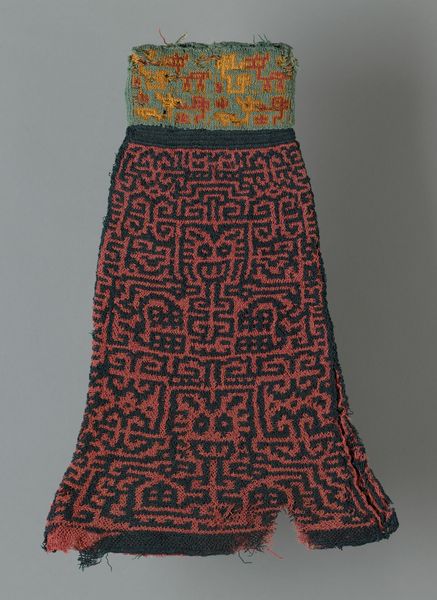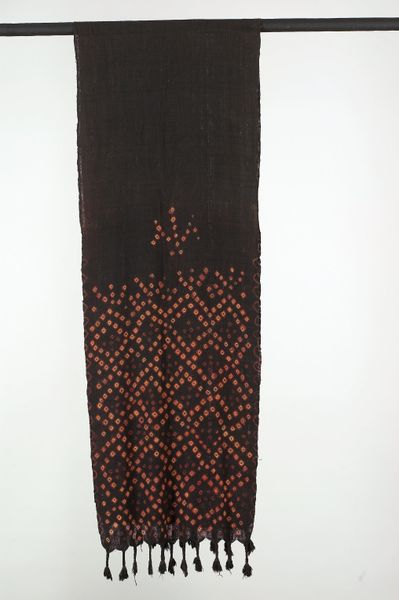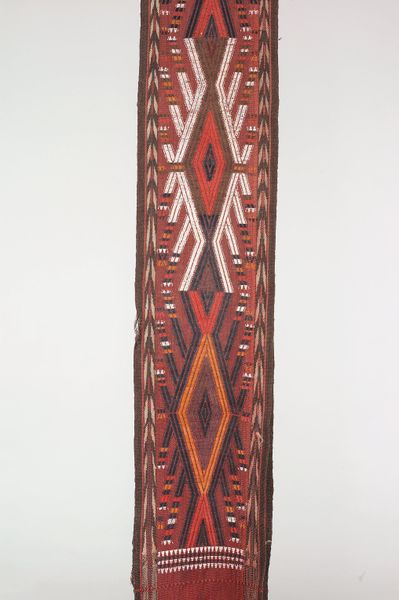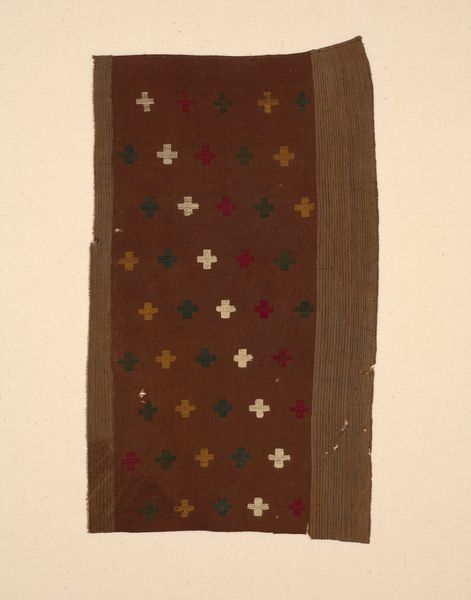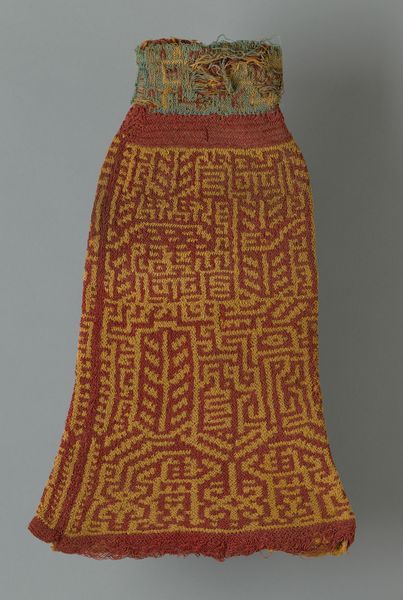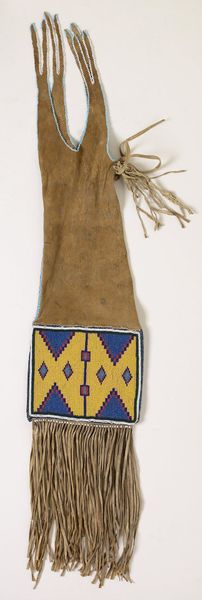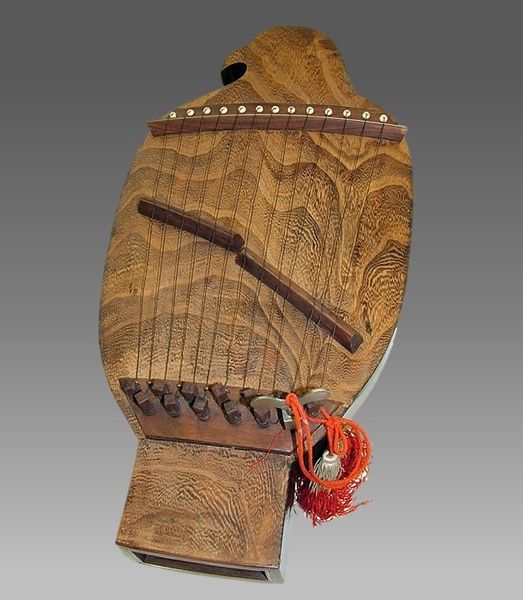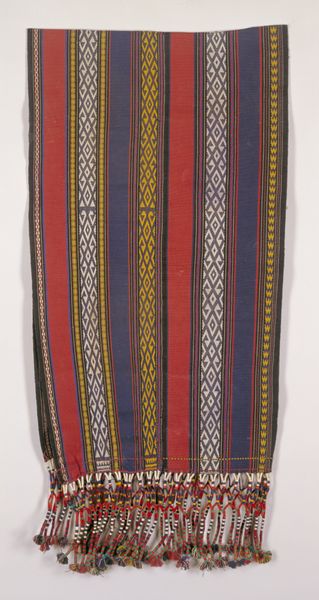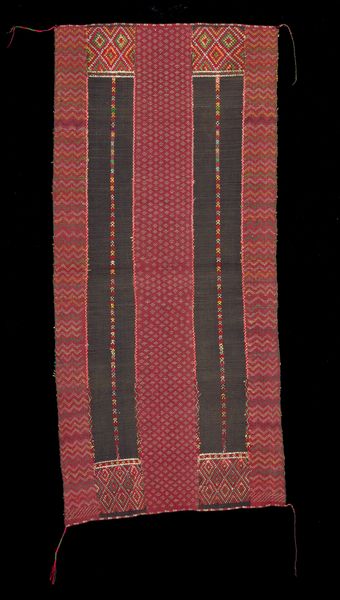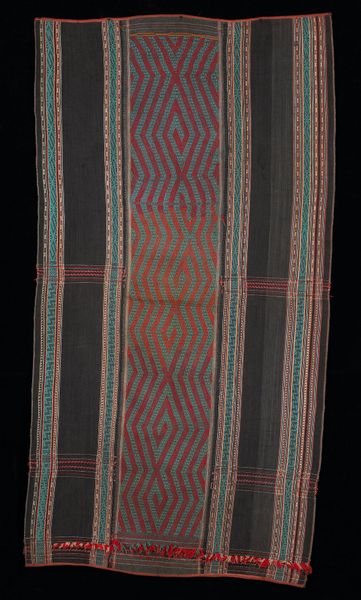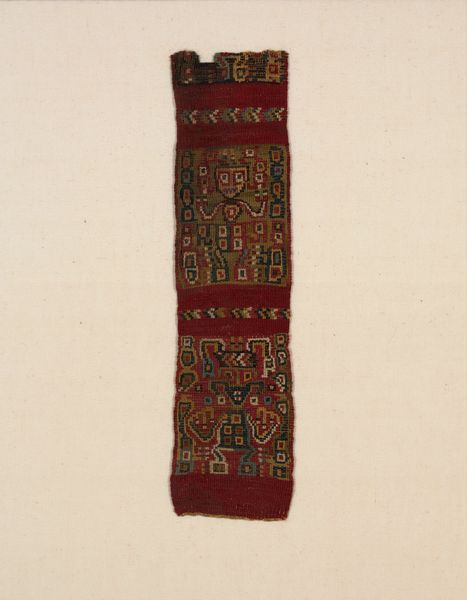
weaving, textile, wool
#
fashion mockup
#
weaving
#
textile
#
collage layering style
#
wool
#
fashion and textile design
#
text
#
wearable design
#
latin-american
#
fabric design
#
men
#
costume
#
clothing photo
#
textile design
#
imprinted textile
#
layered pattern
#
dress
#
arm
#
clothing design
Dimensions: 129.5 × 35.6 cm (51 × 14 in.)
Copyright: Public Domain
This Loincloth Panel was created by the Chancay people of ancient Peru using cotton and feathers. The Chancay culture flourished in the coastal valleys north of present-day Lima, between about 1000 to 1450 AD, a period marked by social hierarchies and complex belief systems. Loincloths were not merely garments; they were potent symbols of status and identity. The intricate patterns and materials used, like the dyed feathers, signaled the wearer's position within the community. The geometric designs may represent cosmological beliefs or lineage markers, and the very act of weaving was itself imbued with spiritual significance. The textile traditions of the Chancay were deeply interwoven with gender roles, with women primarily responsible for weaving, thus embedding female labor and artistry within the fabric of society. Textiles like this loincloth panel open a window into the lives, beliefs, and social structures of the people who wove them.
Comments
No comments
Be the first to comment and join the conversation on the ultimate creative platform.
